News
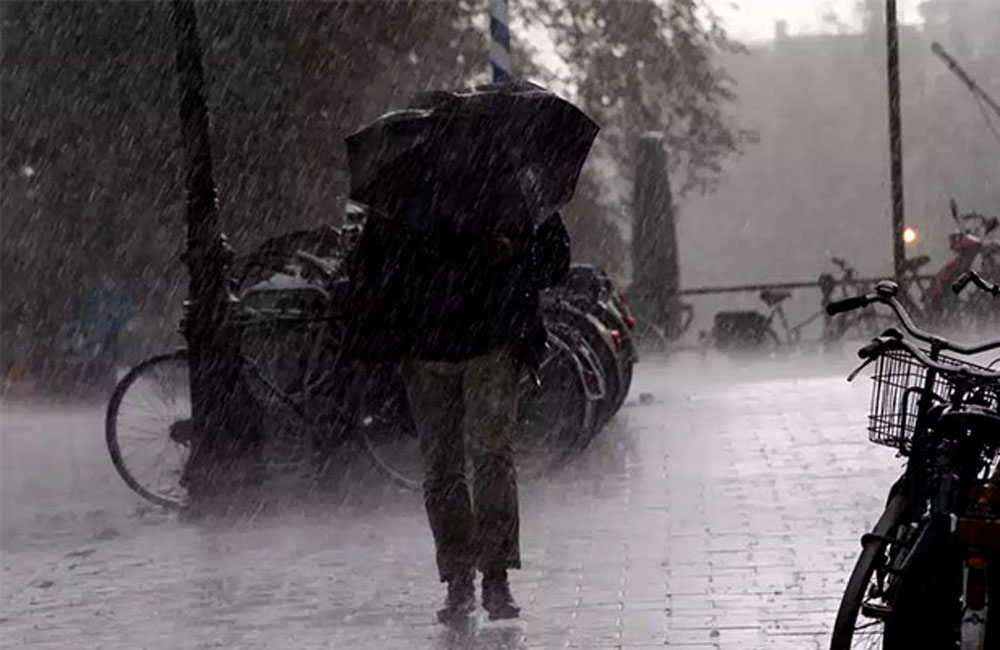
Met Department warns of intensified rains and strong winds across Sri Lanka
The Department of Meteorology reports that the low-pressure system over the southwest Bay of Bengal, positioned south of Sri Lanka around midnight, is likely to strengthen into a depression within the next 30 hours.
As a result of this developing system, the island is set to face heightened rainy and windy conditions over the coming days. According to the Met Department, many areas can expect intermittent showers or thunderstorms throughout the day.
Very heavy rainfall of more than 150 mm is possible in parts of the Eastern, Central and Uva provinces, as well as the Polonnaruwa district. Other regions may also see significant rainfall, with some locations likely to receive over 100 mm.In addition, wind speeds of around 50 kmph are expected at times in the Northern, North-Central, North-Western, Western and Eastern provinces, and in the Hambantota and Matale districts. Other areas may experience fairly strong winds of about 40 kmph.
Authorities urge the public to remain cautious and take necessary measures to reduce the risk of damage from strong winds and lightning.
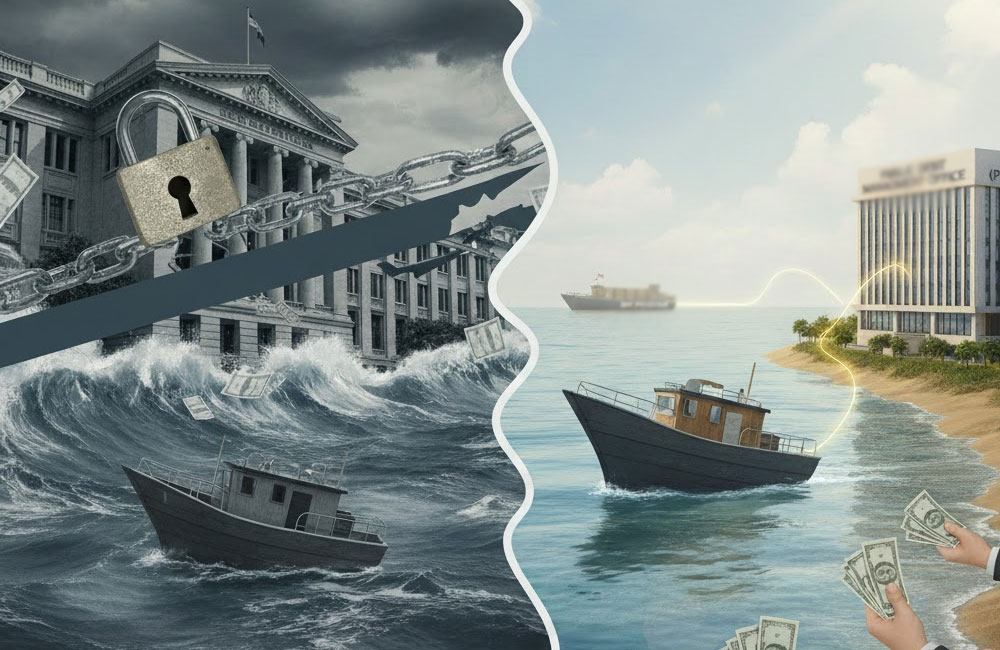
Sri Lanka Tests Post-Default Waters with New Dollar Bond: A Risky Step toward Market Re-Entry
Sri Lanka’s decision to issue a US$50 million Domestic Dollar Bond (DDB) next week marks the country’s first foreign-currency borrowing attempt since the 2022 suspension of external debt payments a move that signals cautious experimentation at a time when the nation remains locked out of the global capital market until at least 2028.
The issuance, managed by the newly established Public Debt Management Office (PDMO), is being framed by authorities as a pragmatic mobilisation of dollars already circulating inside the banking system. Yet the move raises critical questions about sustainability, risk exposure, and the broader roadmap for regaining investor confidence.
The bond auction, scheduled for 3 December, will offer one-, two-, and three-year maturities, with interest rates determined through competitive bidding. Although the minimum investment is set at US$1 million, participation is limited to domestically incorporate licensed commercial banks.Payments will be channelled to the Central Bank of Sri Lanka’s account at the Federal Reserve Bank of New York, signalling an attempt to instil procedural credibility and ensure settlement security.
The Government is attempting to diversify its funding sources after the 2022 default abruptly cut off access to global capital markets. Prior to the default, the country issued Sri Lanka Development Bonds (SLDBs), a mechanism suspended in February 2023 as part of the sweeping economic stabilisation programme.
SLDB holders later exchanged US$791.4 million of outstanding bonds for rupee-denominated Treasury instruments under the Domestic Debt Optimisation (DDO) initiative, a forced restructuring that weakened investor trust in sovereign dollar-denominated paper.
That history casts a shadow over the new DDB, raising concerns about whether banks—already strained by dollar liquidity requirements will view the instrument purely as a patriotic obligation rather than an attractive investment.
The issuance also marks the first major operational test for the PDMO, established in January 2024 under the Public Debt Management Act to centralise all debt-related functions previously split across various agencies.The PDMO’s expanded authority, including direct engagement with primary dealers and the formulation of new regulations, is central to Sri Lanka’s commitments under the IMF programme.
The country’s debt stock remains precarious even after completing 99% of its external restructuring, including International Sovereign Bonds, and restoring market access will depend on demonstrating credible, rules-based debt management.
A key question is whether the DDB represents a genuine borrowing strategy or a temporary measure to bridge near-term foreign-currency gaps. A Central Bank survey in August indicated domestic appetite for up to US$100 million in dollar instruments, prompting authorities to begin with a smaller US$50 million tranche.
While officials frame this as a controlled pilot, analysts caution that excessive reliance on domestic dollar borrowing could create fresh vulnerabilities, especially if foreign-currency inflows fall short of expectations.
The Government’s broader challenge is balancing short-term liquidity needs with long-term market credibility. Issuing a dollar bond domestically may help stabilise cash flows, but its success will ultimately depend on transparent execution, predictable repayment capacity, and whether investors interpret it as a sign of gradual recovery or a signal that external financing pressures remain unresolved.
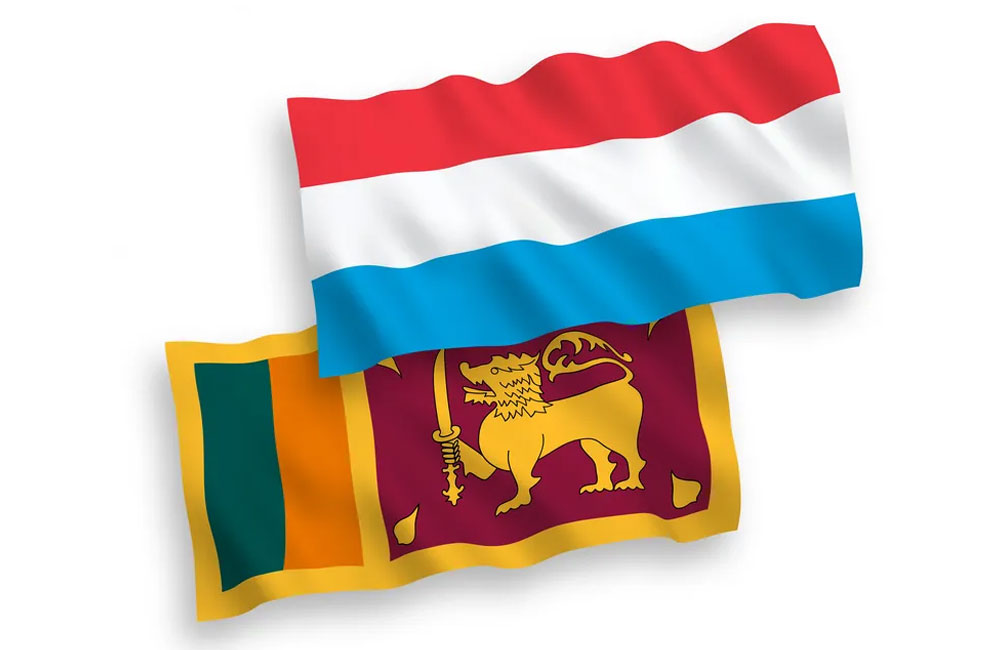
Cabinet Approves Revised Tax Agreement Between Sri Lanka and Luxembourg
Sri Lanka is set to strengthen its international tax cooperation framework after the Cabinet of Ministers granted approval to sign an updated protocol to the Double Taxation Avoidance Agreement with Luxembourg.The original pact, signed on 31 January 2013, was designed to prevent individuals and companies from being taxed twice on the same income. Both countries are members of the OECD/G20 Base Erosion and Profit Shifting (BEPS) Inclusive Framework, which requires participants to adopt minimum global tax standards.
As part of this obligation, Luxembourg’s tax authorities proposed amendments to ensure the agreement meets BEPS compliance benchmarks. After reviewing the recommendations, Sri Lankan tax officials agreed to the changes, leading to the drafting of a revised protocol.
The updated document has since received the necessary approvals from the Attorney General’s Department and the Ministries of Foreign Affairs, Foreign Employment, and Tourism.
Acting in his capacity as Minister of Finance, Planning, and Economic Development, President Ranil Wickremesinghe presented the proposal, which the Cabinet has now formally endorsed. The revised protocol will be signed to reinforce efforts to curb tax evasion and prevent double taxation between the two nations.
.

Sri Lanka’s Silent Billionaire Tax Cartel Thrives Unchecked
Sri Lanka’s long-running tax evasion crisis has taken a sharper turn this year, raising concerns that a powerful cartel of billion-rupee defaulters is operating with near-total impunity. Despite repeated pledges by successive governments including the current administration to eliminate corruption and illicit wealth, evidence points to a widening gap between political promises and enforcement.
Former Minister Patali Champika Ranawaka recently reignited public debate by revealing staggering figures: 4,570 individuals owe more than Rs. 100 million each in unpaid taxes, while 90 ultra-wealthy individuals have liabilities exceeding Rs. 1 billion.
According to him, no prosecutions have been initiated against these top-tier defaulters under the current president. Instead, the government has pursued minor infractions such as distributing spectacles or publishing advertisements a move critics describe as selective enforcement.
These revelations come at a time when Sri Lanka is under heightened IMF pressure to boost revenue. By mid-2025, Public Finance Lanka reported that defaulted taxes at the Inland Revenue Department (IRD) surpassed Rs. 1 trillion, the highest in Sri Lankan history. This marks a 22% increase over the first ten months of 2024, signalling that tax leakage is accelerating.
Economic experts warn that the brunt of the crisis is borne by ordinary taxpayers. New VAT hikes, broadened PAYE coverage, and indirect levies are increasingly imposed to fill the gap created by high-value tax evaders. Meanwhile, business lobbies representing casinos, real estate, and high-end imports sectors historically associated with tax irregularities continue operating without fear of prosecution.
Even more alarming is the banking sector revelation. Ranawaka claims that individuals and companies who defaulted on Rs. 700 billion in loans from state banks continue to function without scrutiny. In most countries, such defaults would trigger criminal investigations and asset freezes. In Sri Lanka, however, these defaulters reportedly continue to enjoy political patronage.
Authorities maintain that they are taking corrective measures. In July 2025, the IRD initiated criminal investigations into VAT evasion and launched asset seizures targeting companies with multi-billion rupee arrears. President Anura Kumara Dissanayake announced structural reforms to the IRD, Customs, and Excise Departments and disclosed that he holds a list of 200 major tax evaders who collectively owe Rs. 100-150 billion.
However, critics argue these measures are insufficient. Legal delays, weak audit systems, insufficient digital monitoring, and entrenched political influence have created a system where wealthy tax evaders thrive, while smaller entities face disproportionate enforcement.
Unless Sri Lanka musters the political courage to prosecute the wealthiest offenders not merely highlight them the country risks further fiscal instability. For now, the billionaire tax cartel remains firmly protected, draining state coffers as the public continues to bear the burden.
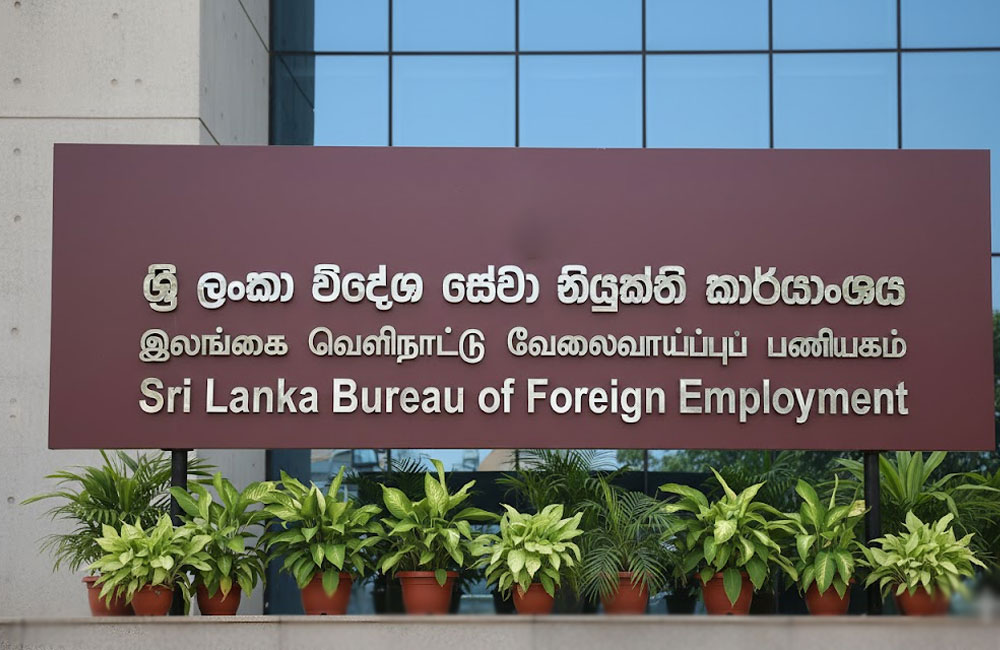
Former Chairman of SLBFE Mohammed Hilmi arrested
Former Chairman of the Sri Lanka Bureau of Foreign Employment (SLBFE), Mohammed Hilmi, has been arrested on corruption charges by the Commission to Investigate Allegations of Bribery or Corruption (CIABOC).
He was taken into custody on charges related to an alleged irregularity that occurred during the process of sending workers to Israel.
Regarding the alleged malpractice related to sending workers for jobs in Israel during the previous administration, Manusha Nanayakkara, who was the Minister of Foreign Employment at the time, was also arrested and subsequently released on bail.
The former Chairman of the SLBFE has now been arrested by the Bribery Commission in connection with the specific incident, said Ada Derana reporter.
( Source : adaderana.lk)
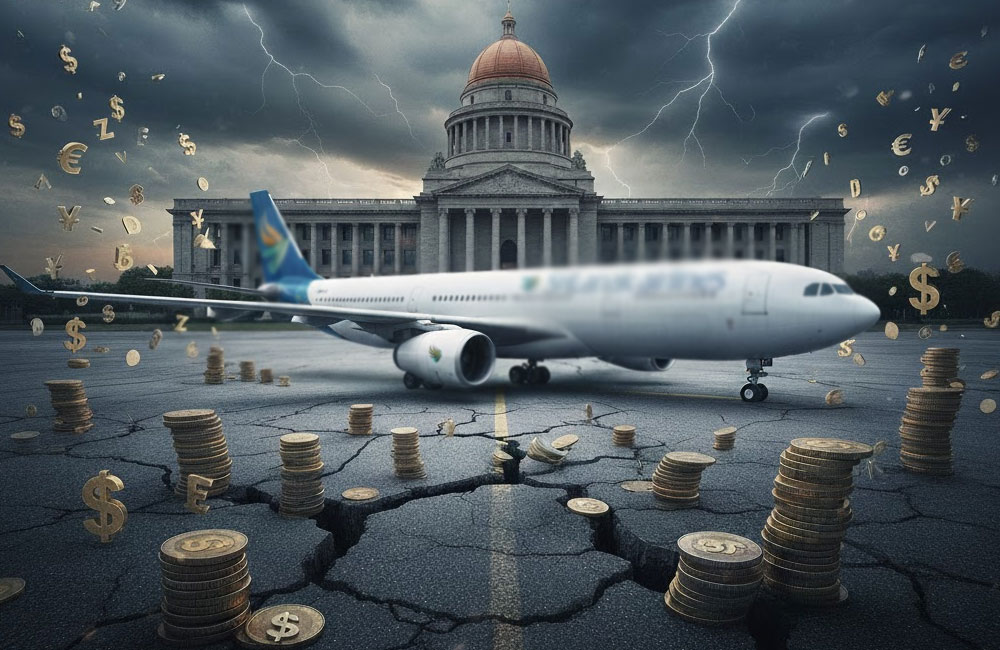
SriLankan Bailout: Taxpayers Shoulder Massive Debt Burden Risks
Sri Lanka’s national airline is once again at the center of a costly financial rescue, with taxpayers poised to inject nearly Rs. 100 billion over the next five years to stabilize SriLankan Airlines, officials revealed. Of this, Rs. 25 billion will be pumped in during 2025 alone, raising concerns over the sustainability and economic impact of maintaining the state-owned carrier.
Deputy Treasury Secretary A.K. Seneviratne informed the Parliament’s Committee on Public Finance that the funds will be allocated as equity to cover sovereign-guaranteed bank loans, without accounting for additional costs linked to bond repayments. The Treasury currently backs loans totaling Rs. 50.675 billion, primarily from state banks including Peoples Bank and Bank of Ceylon.
The airline’s liabilities include approximately USD 210 million in foreign currency loans and around Rs. 30 billion in domestic rupee credits. These obligations are set for restructuring before the end of 2025, with repayments planned over five years, averaging Rs. 20 billion per year. Interest rates on rupee loans, previously as high as 16%, will be reduced to the Sri Lanka Standing Lending Facility (SLFR) +1%, while USD loans with interest near 10% will be lowered to roughly 6%. Seneviratne explained that the initial “day-one” loss of nearly Rs. 13 billion will offset the reduction in interest rates.
Treasury officials emphasized that the restructuring follows months of negotiations to comply with central bank regulations aimed at ensuring bank solvency. “Similar measures were applied in energy sector loan restructures,” said Damitha Rathnayake, Additional Director General of Treasury Operations.
Despite these interventions, the airline’s chronic financial fragility continues to draw criticism. Committee Chairman Harsha de Silva described the carrier as a “black hole” for public funds, noting that it has operated without a chief executive for the past eight months. Historical precedent underscores the pattern: SriLankan has repeatedly received capital injections, including a USD 500 million equivalent in 2011, and USD 150 million in 2020, yet profitability remains elusive.
Compounding the challenge, Sri Lanka’s currency depreciation from roughly Rs. 120 per USD in 2011 to Rs. 308 today has inflated the cost of dollar-denominated loans, increasing losses on foreign debt. Additionally, the airline owes over USD 200 million in sovereign-guaranteed bonds and interest arrears to foreign investors, with a preliminary restructuring deal offering a 15% haircut.
Economists warn that continued reliance on taxpayer support for SriLankan Airlines diverts public resources from critical development priorities, while creating fiscal risks if losses persist. With successive capital injections failing to secure long-term stability, questions remain over whether the government can sustainably maintain the carrier without jeopardizing broader economic health.
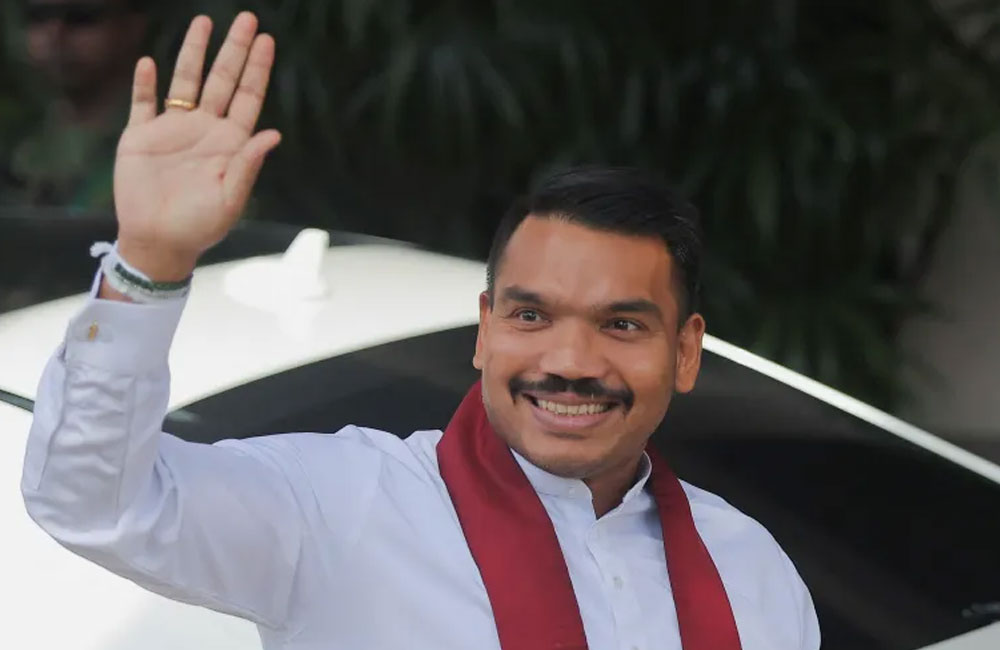
Namal Rajapaksa: CID Summons of Aruna Editor a Threat to Press Freedom
MP Namal Rajapaksa has condemned the recent summoning of Mahinda Ileperuma, Editor-in-Chief of the Aruna newspaper, to the Criminal Investigation Department (CID), describing it as an act of media suppression and a warning to journalists nationwide.
In a statement, Rajapaksa expressed strong disapproval of what he termed an effort by political actors-who claim to oppose repressive laws—to use the CID as a tool to intimidate the press.The summons was issued in connection with a news report published under Ileperuma’s editorship, which claimed that, in addition to a Grama Niladhari certificate, a certificate from the Chairman of the Public Security Committee was also required to obtain police reports.
Rajapaksa emphasized that disputes over press content should first be addressed through established channels, such as filing a complaint with the Sri Lanka Press Council or referring the matter to the Parliamentary Privileges Committee. By bypassing these procedures, he said, the government is demonstrating its readiness to suppress independent journalism.The MP reiterated his condemnation of media intimidation, calling it “deeply regrettable” that the CID is being used to enforce narrow political objectives at the expense of press freedom.

Gold Prices Surge in Sri Lanka Following Global Market Increase
Gold prices have climbed again in Sri Lanka, mirroring a notable rise in the global market. As of today, the international gold price has increased by USD 4,150, prompting a local surge.According to market reports, the price of a 22-carat gold sovereign at Colombo’s Pettah market rose to Rs. 309,200, up from Rs. 303,600 yesterday. Meanwhile, a 24-carat sovereign, previously priced at Rs. 330,000, now costs Rs. 336,000.
Traders attribute the increase to ongoing global market fluctuations, which continue to impact local gold rates, making today’s price surge one of the more notable recent changes in the Colombo gold market.

Struggling Apparel SMEs Warn of Crisis behind Export Success Story
For decades, Sri Lanka’s apparel industry has been a national success story, built on foreign investment, ethical manufacturing, and global export credibility. Yet beneath the polished operations of large exporters lies a less visible reality: hundreds of small and medium enterprises (SMEs) that form the supply-chain backbone are now struggling to survive amid rising costs, new taxes, and limited access to finance.
These SMEs provide trims, accessories, small-batch production, and specialised services critical to the competitiveness of larger firms. Despite their contributions, many feel marginalised. A pressing concern is the new 18% VAT on imported raw materials, previously duty-free for exports. SME owners say the upfront tax strains cash flow, delays orders, and limits investment in machinery or automation. “Most BOI companies are no longer eligible. There is no level playing field,” said one Katunayake manufacturer.
Liquidity constraints exacerbate the problem. Large exporters have financial buffers; SMEs operate on thin margins where small policy changes can tip the balance. Access to finance is another barrier, as banks require heavy collateral rather than evaluating business projections. Without affordable funding, SMEs cannot invest in automation or overseas marketing, limiting cost efficiency, productivity, and competitiveness.
Technology adoption could offer relief through online buyer engagement, supply tracking, and design tools. Yet most SMEs lack capital, skills, and marketing support, leaving them dependent on a few subcontracting clients with low margins. Shared R&D facilities, export grants, and global trade fair participation could help SMEs reach new markets and attract international buyers seeking ethical, diversified sourcing.
The broader challenge is equitable growth. Large exporters thrive, but SMEs supporting the sector face mounting hurdles. Policymakers, banks, and industry bodies must collaborate to create a framework balancing fiscal discipline with export competitiveness. Stronger support for SMEs ensures the entire sector benefits, not just the largest players.
As one SME owner said, “We don’t want handouts. We want a fair chance. When small producers thrive, the whole industry grows stronger.” Resilience alone should not mean survival against the odds. With financial support, smart policies, and collaboration, Sri Lanka can transform SMEs from invisible subcontractors into strategic partners, sustaining the country’s status as a high-value apparel sourcing hub in a competitive global market.

15,000 Families Living in High-Risk Landslide Zones, NBRO Warns
The National Building Research Organisation has raised serious concerns about the growing number of people living in landslide-prone regions, revealing that nearly 15,000 families reside in 250 high-risk zones across the country. These include 230 identified landslide areas and 20 rockfall locations, putting thousands in danger.NBRO officials noted that a significant portion of these risk zones include illegal constructions and informal settlements, which greatly increase vulnerability. In response, the government is preparing to remove or blast unstable rock formations in selected areas to minimize future disasters. However, such operations would require the temporary evacuation of residents living near schools, hospitals, and key businesses, making the process complicated.
Despite repeated safety warnings, many families continue to stay in these zones due to social ties, financial struggles, and limited relocation opportunities. Authorities estimate that around 60,000 people currently inhabit these high-risk regions.
Senior Geologist Laksiri Indrathilaka of the NBRO cautioned that incidents similar to the Lower Kadugannawa disaster could occur again if preventive action is delayed. He explained that earlier attempts to move affected families failed because suitable land was scarce, and proposed relocation sites did not offer reliable livelihoods. Even government-provided apartment housing was declined by residents.
Indrathilaka added that the NBRO has offered technical guidance to district officials regarding unauthorized construction in dangerous zones. The 13 districts identified as highest risk include Badulla, Kandy, Nuwara Eliya, Ratnapura, Kegalle, Kalutara, Galle, Matara, Hambantota, Gampaha, Monaragala, and Kurunegala.He emphasized that both natural geological changes and human activities continue to intensify the threat of future disasters unless immediate steps are taken.
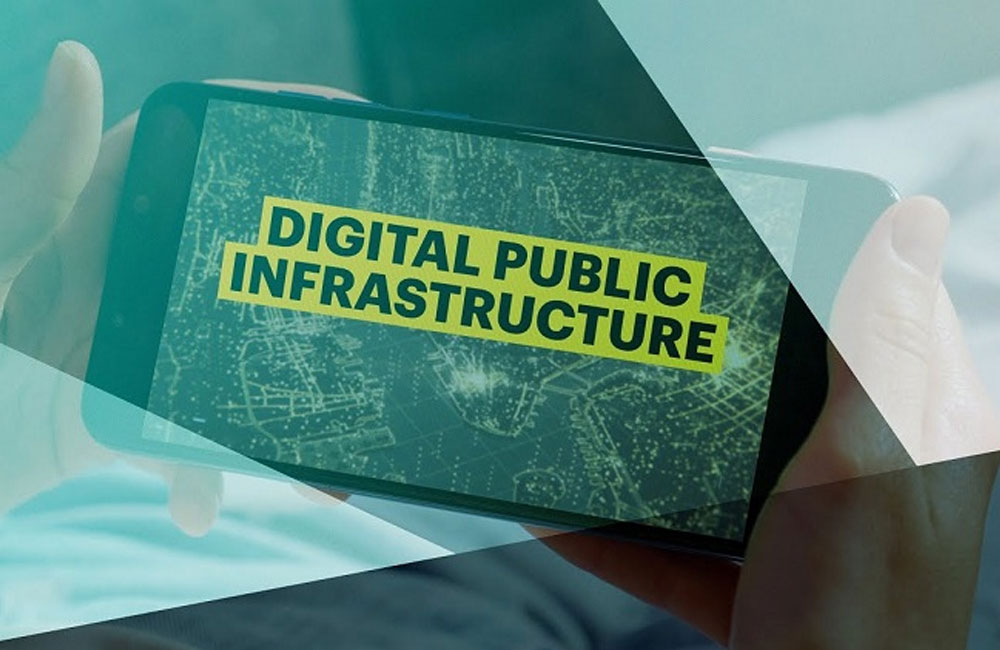
Digital Reforms Risk widening Inequality in Sri Lanka’s Economy
Sri Lanka’s rapid push toward Digital Public Infrastructure (DPI) and accelerated trade liberalisation is being promoted as the backbone of a modern, competitive economy.
However UNDP Country Economist Dr. Vagisha Gunasekara warns that the country’s reform pathway may entrench inequality unless deep structural gaps in access, capability, and labour mobility are addressed before policies take full effect.
Her analysis, delivered in response to a CEPA discussion on the World Bank’s regional report on trade, AI, and labour markets, highlights the risk of digital and trade reforms benefiting only those already positioned to take advantage of them.
Sri Lanka’s digital fundamentals remain weak. More than one third of households are offline, only 37% of adults use the internet, and computer literacy stands at just 34%.
Only one in five households owns a desktop or laptop, leaving most people dependent on low-capability mobile devices for economic participation. The urban–rural divide in adult internet access is nearly 20 percentage points.
These gaps mirror regional figures showing that only 13% of South Asia’s workforce is employed in export-linked sectors, typically younger and more skilled workers concentrated in industries such as apparel, IT, logistics, and tourism.
The divides intensified during the COVID-19 education disruptions. While 63% of children accessed some form of remote learning, 15% received none at all. Children in internet-enabled households had a 90% participation rate, compared with only two-thirds in households without connectivity.
Children from better-educated households were far more likely to access online schooling, reinforcing long-term inequality. “Those children are the ones competing for AI-complementary work a decade from now. Inequality is being wired into the system today,” Dr. Gunasekara noted.
Gender and disability add another layer of exclusion. Women are one-third less likely than men to use the internet, hold only about a third of ICT jobs, and face household and mobility constraints that limit digital participation.
Only 7% of persons with disabilities have used the internet, compared with 24% of the general population. Micro-data from the Vanni region shows that while basic phone use is nearly universal, advanced digital skills correlate strongly with household wealth. Only 17% had ever used the internet for job searches and 70% had never used a Government website.
These disparities come at a critical moment as Sri Lanka rolls out digital identity, digital payments, e-Government, e-procurement, digital customs, and digital education systems. The Government aims to expand the digital economy from its current 3% of GDP to 10% in the medium term and 15% within a decade.
Payments form the core of the upcoming DPI ecosystem, with future phases enabling open banking, open lending, and interoperable financial services. But Dr. Gunasekara warns that without low-bandwidth platforms, multilingual interfaces, offline access options, and targeted support for rural and low-income users, digital systems will simply “reinforce where growth is least accessible.”
Removing tariffs prematurely, she cautions, could trigger import surges, currency pressure, and stress on post-crisis industries. More importantly, mobility barriers weak transport links, lack of affordable housing in growth centres, skills mismatches prevent workers from moving into expanding sectors.
Sri Lanka, she argues, must first reduce non-tariff barriers improving logistics, customs automation, standards recognition, and digital trade systems before lowering tariffs.

Reports Highlight Critical Gaps in Mental Health Services for Sri Lankan Youth
New research has raised concerns over the growing mental health burden in Sri Lanka, revealing that 19.4% of the country’s population is affected by depression. This figure is significantly higher than the 16.1% average reported across other Asian nations, according to a joint study carried out by the Universities of Peradeniya and Kelaniya.The 2023 study further highlights that depression is particularly widespread among young people, with an estimated 39% of individuals aged 10 to 24 years experiencing the condition.
Additional findings published by the Royal College of Psychiatrists through Cambridge University underscore the strain on the country’s mental health system. Only 34% of healthcare institutions have a medical officer trained in mental health, while just 38% have a trained nursing officer, pointing to a substantial shortage of qualified professionals.
The report stresses the need for immediate improvements in youth mental health services, noting that a notable portion of those under 19 report serious emotional distress and experiences of interpersonal violence. Strengthening support systems, the study indicates, is crucial for safeguarding young people’s well-being.
Researchers also point to emigration as a contributing social factor, with Sri Lanka losing around 200,000 people each year. Since 75% of migrating women are married and many leave children behind, the report notes that the emotional impact on these children can be significant, increasing their vulnerability to mental health challenges.
Page 47 of 657
